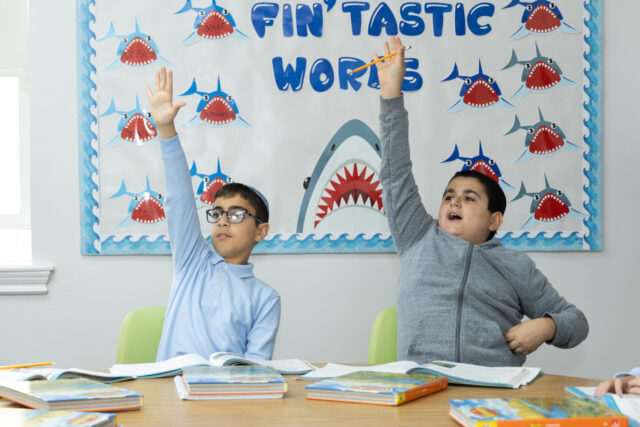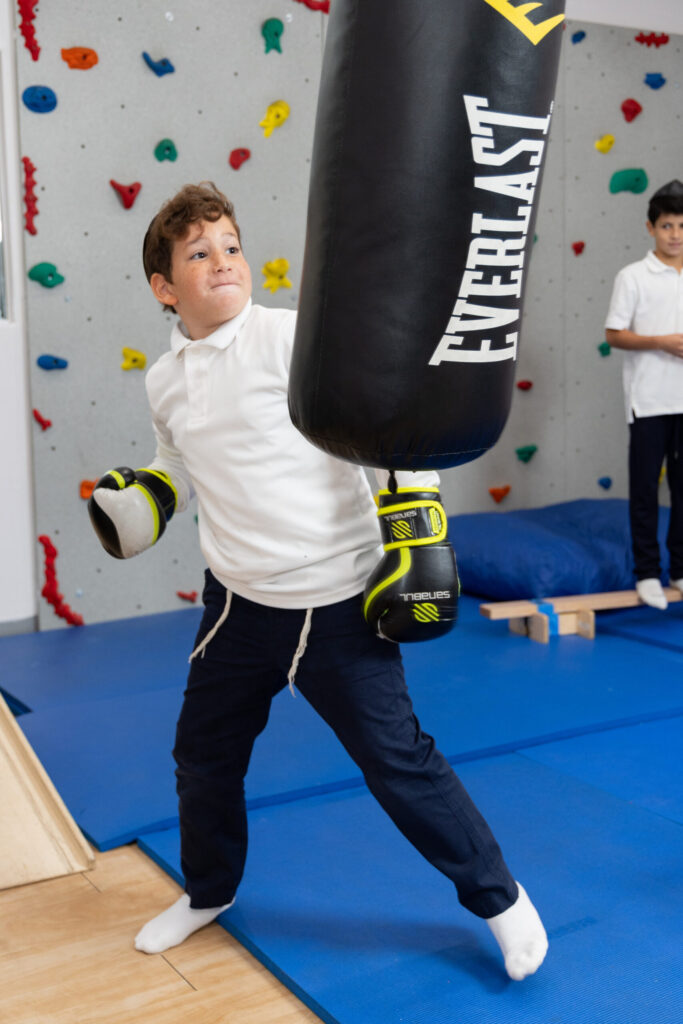
Helping Children with Learning Differences
Reach Their Full Potential
Rabbi Dr. Rafi Cashman
Albert’s parents (pseudonym) came to us last year feeling overwhelmed by the challenges their child was facing in the mainstream first grade classroom. He was not progressing in learning to read relative to his peers, and was struggling overall with his academics. His parents got him tutors to help him keep up with his class level work, but he kept falling further behind. As the year progressed, his increased time with tutors outside of school only raised the level of stress for Albert and his parents alike. Over time, the happy Albert they knew was becoming increasingly distant, reactive, and anxious.

Following the school’s recommendations, his parents pursued multiple assessments, including speech and language evaluations, and a neuropsych. Albert was diagnosed with a language-based learning disability. Following these results, the school provided as many of the accommodations as they were able. However, it didn’t lead to the progress they had hoped for. Instead, frustration continued to build—for Albert, his parents, and his teachers. His parents thought keeping him in a mainstream school was the right decision, afraid of pulling him away from existing friendships, even though they frayed as a result of the increased stress Albert was feeling. The extra tutors and supports drained Albert so much that there was even less time for fun activities and after school sports. Something had to change.
We hear a version of this story over and over again at Gesher Yehuda (which will be re-named Yeshivah Prep Elementary next year). The prospective parent isn’t quite ready to commit to moving their child out of the mainstream. They wonder (and hope): Maybe he’ll just grow out of it – can’t we wait just one more year? But what’s underneath and unstated is often as much of a struggle: What will people say about our family if we put our child in a “different” type of school? How will he keep his friends in the community? And, will he ever get back into the mainstream? In reality, each extra year in the wrong environment sets the child back at a critical time of their growth and development. The delay also creates an emotional and social burden that increases over time and makes the child more frustrated and anxious.
While speaking with a group of parents, they opened up about their transition to our school and all expressed a similar sentiment: “We are thrilled and I’ve never seen my child happier!” And then, “It’s changed our lives as parents.” Thank G-d we have a great school. But the reason for their response goes deeper. This is the first time in their lives that their children are getting what they need: a small class with attention to their individual learning needs; specialists in language, OT, PT, speech and counselling to help them with their still-developing skills; a curriculum that helps build the skills they need; and incredible love and patience. When a child is in the right place, parents see the difference it makes in their home and family.
A learning difference isn’t something one grows out of, and it’s certainly something a child can learn to manage. But it can also be a gift when students at our school learn skills of self–advocacy, organization, and communication that mainstream students only learn later, and often by osmosis. They develop a resilience that other students would be lucky to have at such a young age, and do so in an environment that sees them not just as academic subjects, but whole people.
Gesher Yehuda/Yeshivah Prep is a community school. It means we teach our students about Sephardic culture, pizmonim, tefilah, keriyah, parasha, and everything else we want to be true for our children in the most holistic way. We are a school that wants to see each child discover something that they excel at and find meaningful to them. We want to find ways for them to thrive and exercise curiosity so they can feel competent and successful, even as they struggle with very real academic challenges.
Having a language based learning disability or ADHD can often be supported in a mainstream school, and our community schools put in enormous resources to do so. But sometimes more support is needed, and that’s why Gesher Yehuda/Yeshivah Prep Elementary exists. Don’t let your child struggle when they don’t need to.
So what should you do? Make sure you know what you’re dealing with. Get a neuropsychological evaluation early. The information from this assessment is critical to getting the right support. Then you can start to get your child the services they need and deserve. Although this can be costly, it is an investment to ensure that your child has the learning skills they need. Not addressing these issues early on can lead to even more expensive and challenging interventions down the road. Make sure to ask the experts (a psychologist, a speech and language therapist) what they think is the best learning environment for your child. They have seen a version of your child’s profile throughout their career, and have a pretty good idea about what they need. Finally — remember that your child is whole and wonderful.
Albert did join us at Yeshivah Prep and has made enormous progress. He’s successful academically, can advocate for his learning needs, and is much happier. When we spoke to mom, she told us about the brilliant and positive aura Albert walks around with. He has time for leagues at the Center, and prays with his dad on Shabbat. She may be even happier than he is.
Rabbi Dr. Rafi Cashman is the Head of School at Gesher Yehuda/Yeshiva Prep in Brooklyn, a school for students with language learning disabilities. He is also a mentor in the Day School Leadership Training Institute at Prizmah. He holds a Masters of Education from Yeshiva University, a PhD in Education from OISE at the University of Toronto, and received Semicha in Toronto.



